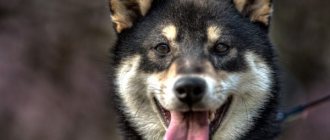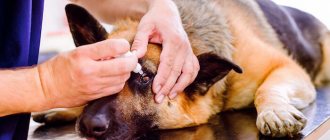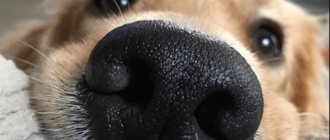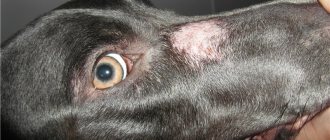When you first see your dog's lower jaw shaking, you may start to wonder if something is wrong. I know this from the first time I saw it happen to my puppy!
My mind immediately started running through all the possible illnesses that could be causing this. Did my dog have a seizure? Maybe she ate poison? It is human nature to make such extreme conclusions.
In fact, if your dog's lower jaw is shaking, there's probably nothing to worry about. Jaw tremor is nothing more than a form of tremors that is common to all dogs. Although jaw tremors can be caused by medical reasons, it is most likely due to a non-medical problem such as agitation, anxiety, or old age.
Some breeds also tend to tremble more than others. Breeds that are overly anxious, such as Chihuahuas, poodles, Jack Russells, and even Labradors, tend to have a more jittery jaw than other calm breeds.
It is also more common in older dogs, regardless of breed. As dogs get older, they begin to lose control of their muscles, experience more pain, and become more sensitive to cold, which can lead to trembling jaws.
Prevention of hypertonicity of the TMJ muscles
Preventive measures against hypertonicity of the lower jaw muscles will help prevent the disease with an integrated approach. It is much easier to follow the general recommendations of doctors than to face a painful spasm of the TMJ. Prevention includes the following activities:
- Preventive visits to the doctor every six months.
- Careful systematic oral hygiene.
- Treatment of caries at its first symptoms.
- Orthodontic treatment for malocclusion pathologies.
- Disinfection of food products.
- Antitetanus therapy for animal bites.
- A set of necessary vaccinations.
- Do not open your mouth wide (jaw dislocations often occur when trying to bite off a large fruit).
- Do not overuse solid foods and do not chew nuts with your teeth.
- Avoid stressful situations, react less to stress.
When is a visit to the vet necessary?
Cases when veterinarian assistance is required immediately:
- suspected infection with viruses or bacteria;
- the presence of a large number of other signs of the disease, in addition to trembling: loss of appetite, loss of water, unexplained aggression or excessive lethargy, fever, chills, cough, conjunctivitis;
- condition after pregnancy and childbirth;
- prolonged trembling that does not go away after measures are taken;
- convulsions.
It is important to be able to distinguish between tremors and seizures. In the first case, it is rhythmic shaking, and in the second, it is paroxysmal contractions of individual muscles. If the dog does not receive medical care in time for metabolic disorders, hormonal imbalance, or infections, then the risk of death is high.
In order for the dog to tremble as little as possible, the owner must take care of prevention: dress short-haired pets in special clothing in cold weather, provide a bed, good food and water, and monitor the condition of the animal. It’s also a good idea to teach your four-legged friend not to pick up food on the street. The prevention of many diseases is vaccination on a schedule.
Medical reasons
Above we have listed the 5 most common non-medical causes of jaw tremors in dogs. Below we list the 6 most common medical causes. Although we list more medical causes, this does not mean that medical causes are more common.
In fact, I would say there is a 95% chance that this is NOT a medical cause. So don't let the list below scare you. We wanted to cover all the possible reasons why a dog's jaw might be shaking, and the truth is that sometimes this behavior can be caused by medical reasons.
If you suspect a health problem is causing the trembling, take your dog to the vet as soon as possible.
Dental problem
This is the most common medical reason why a dog's jaw is shaking. Whether your dog has tooth decay or suffers from periodontal disease, mouth pain can cause jaw trembling and teeth chattering.
The reason jaw tremors occur due to oral pain is because dogs try so hard to hide their pain that it causes them to tense up. The more tense they become, the more they shake.
If you don't check and brush your dog's teeth regularly, be sure to schedule an appointment with your veterinarian soon and make it part of your grooming routine.
I
This is most likely NOT the case, but the venom can make your dog tremble. Usually the venom causes the entire body to shake, not just the jaw, but in some cases the dog may only shake at the jaw. However, other, more concerning symptoms will be accompanied by trembling, so unless your dog is also vomiting or walking funny, you don't need to worry about poison.
Suborogs
Seizures are very common in dogs. We had a beagle who would have seizures at least twice a year. Sometimes the best thing you can do for them is to pet them to calm them down until they stop shaking.
During a seizure, the whole body twists and shakes, but even after it's over, the jaw may continue to shake for several minutes. If you walk into a room and your dog's jaw is shaking, it could be the last few minutes of a seizure. However, if you have never seen your dog have a seizure before, this is probably not the reason.
Shake Syndrome
Shaken syndrome (also known as idiopathic cerebellitis) is when the cerebellum in the brain becomes inflamed for reasons we still don't understand. The cerebellum is responsible for muscle movements. When inflamed, it causes the body to shake.
Like seizures, this syndrome causes the entire body to shake, but usually only the jaw continues to shake in the last few minutes.
Surprisingly, shaken syndrome is much more common in dogs with white coats. It is very rare for a dog with dark hair to suffer from this disease.
Side effect of drugs
This is often forgotten because medications are designed to help our dogs get better. But some dogs react differently to certain medications, especially painkillers.
If your dog has recently started taking a new medication, there's a good chance it's causing the tremors.
Idiopathic
We cannot rule out the unknown. Sometimes dogs shake in their jaws for no apparent reason. If it doesn't affect their quality of life, you have no reason to worry.
Other causes of muscle tremors in a sick dog
- Pain. Severe pain leads to anxiety in the animal and unpleasant sensations, which are accompanied by the appearance of trembling, while the animal takes a forced position, lies down, and refuses food. Other signs of illness may occur: vomiting, diarrhea, jaundice, cough.
If the pain comes in attacks, then intensifies, then weakens, then the dog’s trembling may go away for a while, then resume with the appearance of pain. Severe, acute pain and, as a result, trembling in the dog causes an exacerbation of a serious disease.
The use of painkillers will relieve pain and relieve muscle spasms.
Why do old animals click?
Over the course of its life, the dog receives dental injuries (cracks, chips), wears off tooth enamel, and damages gums. All these factors, combined with poor nutrition, can lead to caries and similar diseases . Caries itself irritates the dental nerve, causing contractions, and the body also tries to get rid of the diseased, infected tooth using this method.
If your dog's teeth are loose or his breath smells bad, he clearly has an oral disease. They can be caused by infections, lifestyle choices, or trauma (such as hot food or bone breaking the gum)
REFERENCE! Knocking can also be a consequence of injury. When enduring severe pain, a person clenches his fists, clenches his teeth, or performs similar actions. To distract himself, the pet has no choice but to chatter his teeth.
Seizures in dogs: causes and treatment
The most common cause of involuntary muscle contractions is epilepsy . Epilepsy is of two types: primary and secondary . Primary is caused by genetic disorders in the functioning of the brain and nervous system.
It can appear in dogs aged from six months to 5 years. Secondary occurs due to a variety of unforeseen situations, including the following:
- poisoning with toxic substances;
- poison entering the body (for example, a snake bite);
- electric shock;
- parasites in the animal’s body (worms, for example);
- head injuries;
- starvation;
- kidney or liver disease;
- diabetes;
- vitamin deficiency, lack of minerals;
- infections (eg, tetanus);
- metabolic disorders.
Important! These disorders in the animal’s body provoke not only the development of epilepsy and, as a consequence, epileptic seizures, but also the appearance of other types of seizures: convulsions, clonic and tonic seizures in dogs.
So, how can you tell if it’s an epileptic seizure? First of all, remember your pet’s behavior before the seizure.
At the first stage, the pet’s desire to hide from strangers appears; it shakes and whines, and appears in an anxious state.
Then the second stage - at a certain moment the dog loses consciousness, falls, has convulsions throughout the body, breathes heavily and shakes, all this is accompanied by the release of foam from the mouth.
After this, the third stage begins - the postictal stage, when the animal begins to slowly come to its senses, it is not oriented in space and is somewhat alarmed. Usually the seizure does not last very long, about 5 minutes.
But sometimes it can be very long - about half an hour. This usually occurs when the body is in a neglected state.
What to do when your pet has a seizure? It is best to immediately contact a veterinary clinic or call a veterinarian at home. While the seizure lasts, you need to isolate the animal from sharp corners and hard objects so that it does not get injured.
Under no circumstances try to put anything into the mouth , this can end disastrously for both the pet and you, because a cramped jaw is very difficult to unclench. Transportation to the hospital is best carried out in a soft blanket. Your main task is to ensure that the pet does not harm itself. Be sure to take care of a muzzle and collar for your pet.
Important! It is a popular belief among veterinarians that touching an animal during a seizure in any way can only make the situation worse. Therefore, it is better to rid your pet of any external stimuli: loud sounds, bright flashes, sharp touches.
The causes of uncontrolled muscle contractions may vary between breeds. For example, seizures in small breed dogs are often caused by hypoglycemia —low levels of glucose in the blood. In large breeds, the most common cause is epilepsy .
Why is my dog's head shaking?
It happens that a dog experiences convulsions only in a specific part of the body (most often the head and lower jaw shake, and convulsions of the hind legs also occur), then the option with epilepsy is definitely not suitable. Most often, such local muscle contractions are caused by:
- disruptions in the functioning of the nervous system;
- infectious diseases;
- nervous overstrain;
- strong negative emotions.
Of course, this is not the entire list. Sometimes the causes may be very serious disorders in the functioning of the cardiovascular, nervous systems and serious illnesses, as mentioned above. It happens that parasites or infections irritate the skin, and from these unpleasant and harsh effects the muscles contract sharply.
When such “shaking” first appears, you should immediately contact a veterinarian , then there is a chance of avoiding unpleasant consequences.
Infections and parasites are much easier to treat, unlike other causes. However, the main thing is to consult a veterinarian in time.
Cramps in sleep
Most often, puppies and easily excitable dogs twitch in their sleep. They seem to be having “bad” dreams, but in reality they are anxious and afraid. If you see that your pet is shaking in its sleep, then gently, gently touch it and stroke it, cover it with a warm blanket.
This is quite enough for your pet to calm down and sleep more soundly. If convulsions occur not only during sleep, they are not easy to calm, then it is necessary to conduct a full examination in the clinic to find out the reasons.
Important! Animals also have “nervous breakdowns”, they can be accompanied by convulsions. To make the animal feel better, you just need to spend more time with it and isolate it from any unpleasant environmental influences.
What does this mean in puppies?
If your puppy is chattering his teeth, there may be several reasons :
- New teeth are growing. The puppy feels a foreign object in its mouth and tries to spit it out.
- Old teeth are being cut. The classic situation is just give him something to chew on.
- Development of the musculoskeletal apparatus. As the body grows, one can observe an increase in tissue before the eyes. The dog also senses these changes, adapts to them, learns to control and sense new tissues. New neural connections are also formed between the brain and muscles, which the synaptic nervous system automatically tests by sending signals to them, as a result of which the jaw muscles contract.
- Imitation of other dogs or owner. The puppy observes its surroundings and begins to repeat some actions, learns, and gets to know the world.
Should trembling jaw bother you?
The answer to this question is most likely negative. Trembling of the lower jaw is usually nothing serious. In most cases, this will be due to one of the non-medical reasons we've covered in this post. If it is not one of those problems, then it is most likely a dental problem. Although dental problems still need to be addressed, there is nothing to worry about.
However, if you want to be on the safe side, be sure to make an appointment with your veterinarian. Your veterinarian will check for both medical and non-medical problems. He will examine the dog's teeth and then perform a neurological examination to rule out seizures and shaken syndrome.
Don't let the trembling in your jaw bother you. Almost all dogs do this from time to time. My dog does this when he gets excited. Essentially, the shaking is his way of saying, “I’m so excited I can’t control myself!” As long as it doesn't happen 24/7, there's nothing to worry about.
Symptoms of TMJ problems
The disease manifests itself with the following symptoms:
- Painful sensations occur on palpation.
- When opening the mouth, the patient feels a sharp pain.
- Due to pain, a person experiences difficulty eating and communicating.
- Breathing through the mouth is difficult.
- To the touch, the chewing muscles are compacted and slightly increased in volume.
- Facial asymmetry with unilateral spasm.
- Low-grade fever.
- Headache.
The gnathologist
carries out differential diagnosis with a fracture or dislocation of the jaw, as well as with an infectious lesion.
There are three degrees of disease progression: mild (the patient is able to open his mouth four centimeters), moderate (the mouth opens two centimeters), severe (the patient cannot open his mouth more than one centimeter).
Psychological causes of trembling in dogs
Dogs have lived next to people for many years, preserving the basic natural instincts - self-preservation, reproduction, food and territorial. Often they do not understand our world - the world of speed, noise, big houses, asphalt and cars. Fear, expressed by aggression or complete submission, is a dog’s reaction aimed at preserving its own life.
Trembling is an independent acute stress response that is not under the dog's control. This is one of the types of acute stress reactions, when the body releases accumulated tension through the body, otherwise it would “explode”. This is not a muscular, but a nervous tremor, which does not depend on the external temperature. And it is associated with the appearance of any dominant in the central nervous system (CNS) with the appearance of positive or negative emotions in the dog (meeting the owner, going for a walk or being scared in front of the veterinary clinic).
Non-drug ways to deal with a nervous breakdown
- Sports activities. Sports exercises will help you calm down and recharge yourself with positivity. This method has not harmed more than one patient. Sport improves heart function, brain function, and sleep.
- Relaxation programs: meditation, yoga, body massage. Relieve tension, relax the body, get rid of negative thoughts. Do it at least 2 times a week.
- Maintaining a healthy lifestyle. No matter how strange it may sound, it helps. Alcohol, drugs, coffee - all this affects the nervous system.
- Proper nutrition, essential vitamins.











